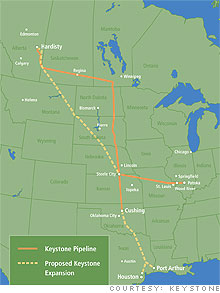China raised their bank reserve requirements again overnight to 21.5%, which is a record high. This marks the ninth such increase since last October.* This means that banks must keep 21.5% of deposits on hand and keeps money from being lent out. from: http://www.topstockportfolios.com/r.../1/0/5bc524c0c80250348022c0ef0e08aabe418d5446
* BT comment: China, unlike the US, wants to and is serious about controlling inflation. The value of China's currency is going up, slowly now, but in a couple of years (IMHO) it will have the tie to the sinking dollar cut and then soar in value as dollar's value starts to plunge downward. Currently 6.47 RMB = a dollar, but I would not be surprised to see the RBM more valuable than the dollar by Halloween 2015 as I have long predicted there will be a run on the dollar one year earlier (by Halloween 2014 or sooner). If that is true, guess who buys oil and who cannot afford to at the elevated prices China's rapidly growing demand will force on the static or shrinking supply.
* BT comment: China, unlike the US, wants to and is serious about controlling inflation. The value of China's currency is going up, slowly now, but in a couple of years (IMHO) it will have the tie to the sinking dollar cut and then soar in value as dollar's value starts to plunge downward. Currently 6.47 RMB = a dollar, but I would not be surprised to see the RBM more valuable than the dollar by Halloween 2015 as I have long predicted there will be a run on the dollar one year earlier (by Halloween 2014 or sooner). If that is true, guess who buys oil and who cannot afford to at the elevated prices China's rapidly growing demand will force on the static or shrinking supply.
Last edited by a moderator:









